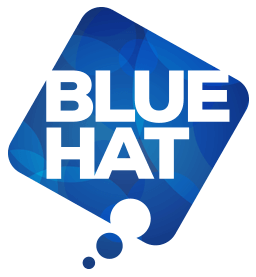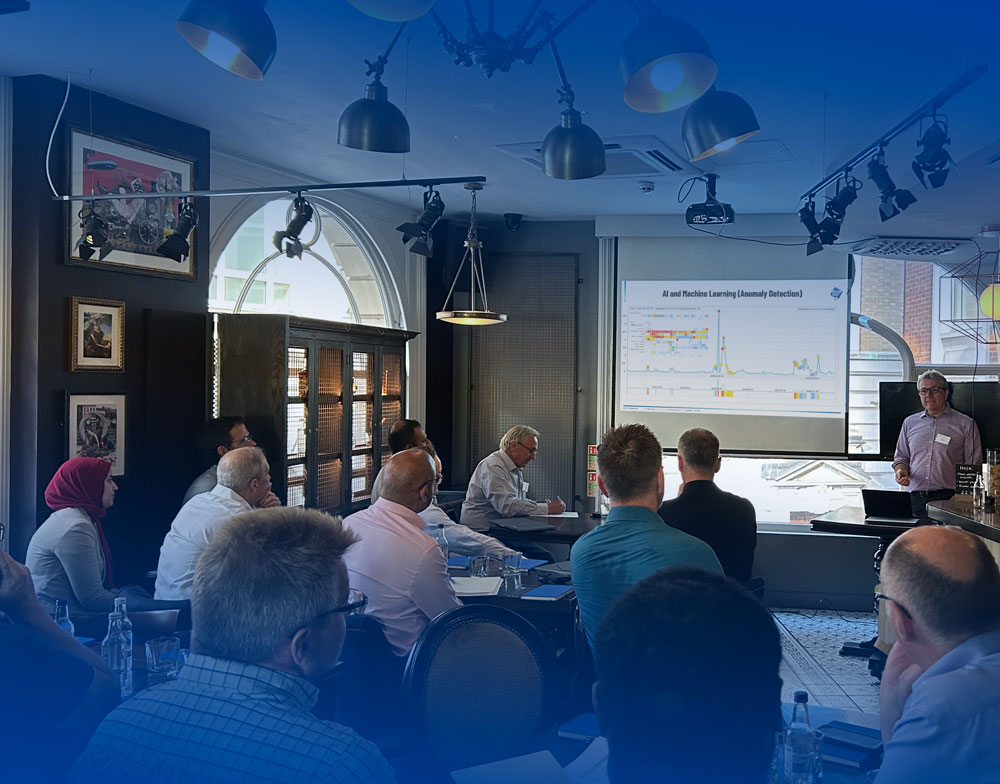Last week Blue Hat Associates hosted the Pistoia Alliance UK Life Science Informatics Forum. We discussed the topic of Digital Twins in Life Science research and development.
While the concept of digital twins has been around for a couple of decades, it has gained more traction in recent years. Adoption remains limited though.
The benefits of more effective R&D are significant. However, developing the models and validating virtual results remain big challenges. As technology advances, it’s clear that it’s the data that holds the key to unlocking the promise of digital twins.
Thank you to John Wise from the Pistoia Alliance who chaired the session, and to the forum members (see below) who shared their unique insights on the topic and inspired a lively and useful discussion.
What are Digital Twins?
Rahuman Sheriff, from the European Bioinformatics Institute, kicked off the discussion on how we collectively define digital twins in the context of Life Science R&D, this was followed by a number of excellent presentations from both industrial and academic contributors.
We landed on a succinct definition:
“A model (or models) that have been validated against ‘Real World’ results to prove their validity”.
This agreement – that models are validated against real data – is critical to ensure digital twins move beyond theoretical studies and progress to application in clinical settings.
Digital twins are being developed in many different domains and are being applied at all scales from molecular to healthcare organisations.
The challenge in healthcare is that the data is very diverse, multi-faceted and often sparse. Making it an extensive task and one that needs to be done in small, validated steps. Starting with getting the data right.
The potential benefits that digital twins can bring to R&D projects span from accelerating timelines, safer and more successful trials, developing personalised therapies as well as reducing costs, and improving operational efficiencies and collaboration.
Data holds the key to Digital Twin adoption
As the technology that supports the development and adoption of digital twins continues to advance, it’s increasingly clear that it is the data that holds the key to unlocking the true potential of digital twins.
Here’s our three takeaways from the forum discussion:
- Data must be good – well understood and accessible in useable ways – and as complete as possible.
- Data must be balanced between that which supports a model and data that diverges so the model can be iteratively improved.
- We need to avoid unconscious bias towards using data that fits a model, so we keep true to the outcome.
As with many transformational technologies, focusing on getting the data right is mission-critical. It’s the place we often start during our initial audits and due diligence on client projects.
The potential for digital twins is truly transformative.
The ability to use models at scale to start to identify disease trends (or significant divergence from “normal”) will be a fantastic thing to achieve. But first we must overcome the complexities and challenges of getting the data right.
It’s a fascinating topic that we’re sure will continue to progress over the coming months and years.
Thanks again to UK Life Science Informatics Forum members for their contributions: Rahuman Sheriff from the European Bioinformatics Institute, Magnus Nyden, from AstraZeneca, Pablo Lamata, Professor at King’s College of London, Dr. Sara Morsy from the University of Bradford and Darren Green, from GSK.
About the UK Life Sciences Informatics Forum & Pistoia Alliance
The UK Life Science Informatics Forum is part of the Pistoia Alliance; a global, not-for-profit alliance of life science companies, vendors, publishers, and academic groups, their mission is to lower the barriers to innovation through pre-competitive collaboration.
Their projects transform R&D innovation and bring together the key constituents to identify the root causes that lead to R&D inefficiencies. Members collaborate as equals on open projects that generate significant value for the worldwide life sciences community. Find out more: www.pistoiaalliance.org
About Blue Hat Associates
Founded in 2016, Blue Hat is owned and run by its partners; all experts in their field who lead from the front working collaboratively with clients. We work with scale-up businesses on their digital and data transformations; combining business acumen with technical experience to implement the right technology solutions.
Collectively, our specialist skills span Cloud Technology, DevOps, Data Engineering, Machine Learning & Automation, Business Intelligence, Front End Development, User Experience and Managed Services.
If you’re looking for help with any of these areas, or need support with your digital transformation, please get in touch and we’ll arrange a time to talk with one of our partners about your data and technology ambitions.

